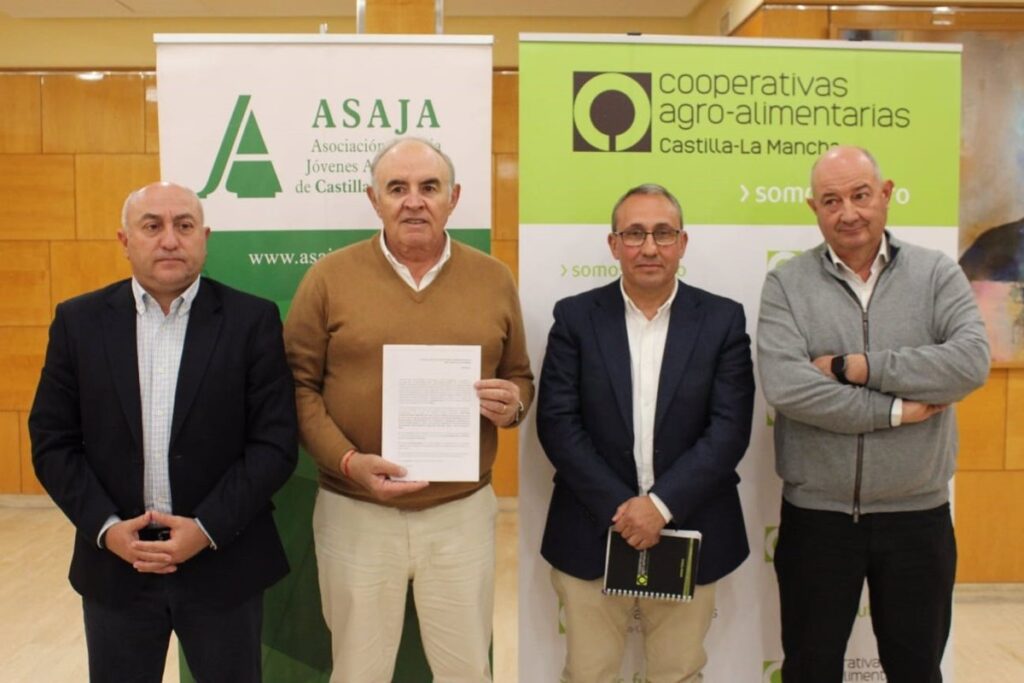Asaja and Cooperativas Agro-alimentarias, along with various water user communities and associations, have filed a lawsuit against Royal Decree 35/2023 of January 24, which approves the revision of the hydraulic plans of the hydrographic demarcations of the Cantabrian Occidental, Guadalquivir, Ceuta, Melilla, Segura and Júcar, and the Spanish part of the hydraulic demarcations of the Cantabrian Oriental, Miño-Sil, Duero, Tajo, Guadiana and Ebro.
«The plans limit productive capacity and condemn the agro-alimentary sector to ruin, leaving it without the tools to develop competitive agriculture,» Asaja and Cooperativas Agro-alimentarias officials said in a press conference. They explained the reasons for filing a lawsuit against the Royal Decree that approves the review of hydraulic plans.
Juan Miguel del Real, the general director of Cooperativas Agroalimentarias of Castilla-La Mancha, and José María Fresneda, the president of Asaja Castilla-La Mancha, said the lawsuit was filed for two reasons, one of responsibility, and the other of coherence. «We cannot leave our farmers alone at this time, so we had to take it to the last consequences,» they said.
The leaders, accompanied by the first vice president of the agricultural organization, Florencio Rodríguez, and the vice president of Cooperativas, Julio Bacete, as well as other officials from organizations and water user communities, stated that this planning did not take into account the allegations that were presented to the Hydrographic Confederations for a more efficient use of water and to address all legitimate demands, such as the continuity of agricultural activities.
«The hydraulic plans deepen failed measures, such as cuts in endowments, sanctions, fines, and limitations that make agricultural operations unfeasible and suffocate irrigation,» they said.
They said it repealed measures such as the accumulation of resources in certain plots that allowed for more profitable operations and water savings, and added that it was based on impartial studies on available resources and the state of water bodies and aquifers. There is no calculation of the volume of existing groundwater reserves that serves as a starting point, they claimed.
Industry representatives have also demanded a hydraulic policy that integrates the country, balancing the deficit areas with the surplus ones. The solution involves investing in infrastructure to manage and exploit water to the fullest before it is lost at sea.
On the other hand, they criticized the prevention of new catchments, referring to wells with a maximum volume of 7,000 m3/year, due to the over-exploitation. This puts the future of the agro-alimentary sector in the region at risk.
«In short, having exhausted the path of protest and negotiation, we have agreed to bring this problem to court, and although we know that a lengthy process is starting, we trust that, in the end, the Supreme Court will give us the right, and the effort will have been worth it,» they said.



















